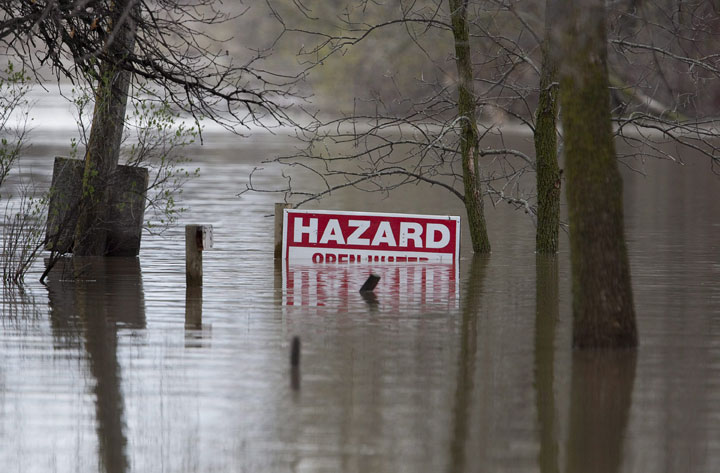WINNIPEG – Negotiations continue to end a flood-forced evacuation of four Manitoba reserves that began in 2011, but the 2,000 people who fled their homes can’t expect to return overnight, Aboriginal Affairs Minister Bernard Valcourt said Wednesday.

Ottawa has been working closely with the province and the affected First Nations, said Valcourt, who added that if it were up to him, people would be back in their homes tomorrow.
“But we’re talking here about rebuilding — literally — four communities,” he said. “This is just the nature of the beast.
“This is not something that will happen overnight.”
Valcourt added he’s confident that talks are progressing and “hopefully these people can return home as soon as possible.”
It has cost over $100 million to provide all the evacuees from Lake St. Martin, Little Saskatchewan, Pinaymootang and Dauphin River with food and shelter. Most are scattered in hotels and rental accommodation.
READ MORE: Manitoba community evacuated in 2011 flood takes step toward new home
A Red Cross study found many of those forced from their reserves are on an “emotional roller-coaster” and are adjusting poorly to life in the city.
Aboriginal leaders say some have committed suicide out of despair, while others have been exposed to high-risk lifestyles in Winnipeg. They say children have missed out on school and are being exposed to the dangers of urban life — alcohol, drugs and gangs — while residents are disconnected from each other and their traditional ways.
Valcourt said he’s concerned about the toll the evacuation is taking, but suggested evacuees are being “well taken care of” by the Red Cross.
Grand Chief Derek Nepinak with the Assembly of Manitoba Chiefs said governments have been dragging their feet instead of negotiating with the First Nations collectively to get people back home.
“It’s a tragedy and we’re witnessing it every day.”
READ MORE: Flood-proof First Nations: Manitoba minister
While governments continue to negotiate with each First Nation individually, people are languishing in hotels and isolated in apartments, Nepinak said.
Dozens have died, either from health problems or by suicide, he said. Families are breaking down and children are being apprehended by Child and Family Services, he added.
“All of this stuff is impacting our communities. I’m concerned that there is really not a tremendous amount of effort on the part of some people in government to get these people back to their communities.”
At least half the evacuees are from Lake St. Martin First Nation, which reached a tentative deal last summer with the federal and provincial government to relocate the chronically flooded community to. Draft figures estimate it would cost almost $100 million for housing, a new school, a nursing station and other infrastructure.
Some reserve residents said they didn’t like the plan because the land being proposed is also prone to flooding.



Comments